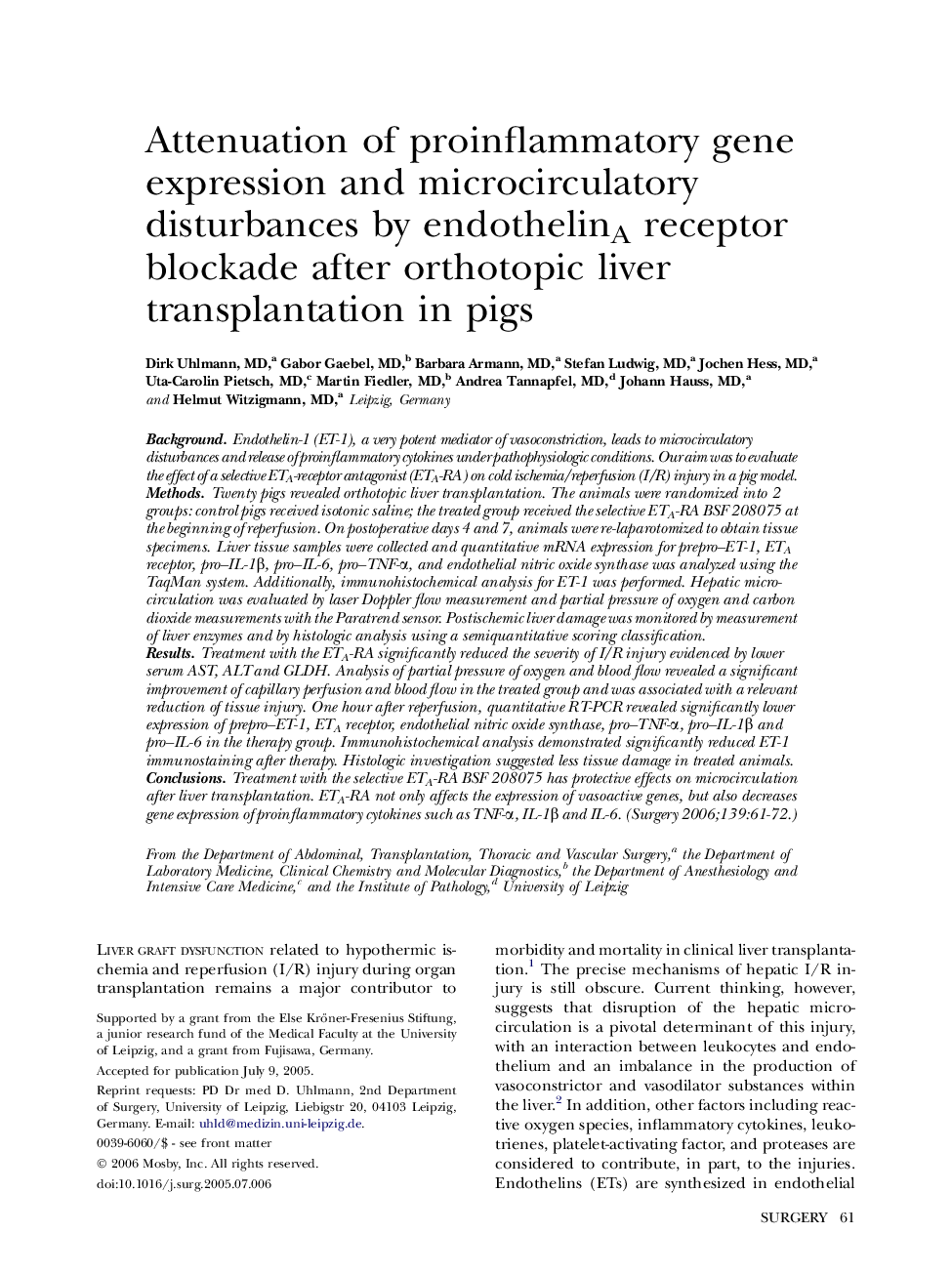| Article ID | Journal | Published Year | Pages | File Type |
|---|---|---|---|---|
| 4310304 | Surgery | 2006 | 12 Pages |
BackgroundEndothelin-1 (ET-1), a very potent mediator of vasoconstriction, leads to microcirculatory disturbances and release of proinflammatory cytokines under pathophysiologic conditions. Our aim was to evaluate the effect of a selective ETA-receptor antagonist (ETA-RA) on cold ischemia/reperfusion (I/R) injury in a pig model.MethodsTwenty pigs revealed orthotopic liver transplantation. The animals were randomized into 2 groups: control pigs received isotonic saline; the treated group received the selective ETA-RA BSF 208075 at the beginning of reperfusion. On postoperative days 4 and 7, animals were re-laparotomized to obtain tissue specimens. Liver tissue samples were collected and quantitative mRNA expression for prepro–ET-1, ETA receptor, pro–IL-1β, pro–IL-6, pro–TNF-α, and endothelial nitric oxide synthase was analyzed using the TaqMan system. Additionally, immunohistochemical analysis for ET-1 was performed. Hepatic microcirculation was evaluated by laser Doppler flow measurement and partial pressure of oxygen and carbon dioxide measurements with the Paratrend sensor. Postischemic liver damage was monitored by measurement of liver enzymes and by histologic analysis using a semiquantitative scoring classification.ResultsTreatment with the ETA-RA significantly reduced the severity of I/R injury evidenced by lower serum AST, ALT and GLDH. Analysis of partial pressure of oxygen and blood flow revealed a significant improvement of capillary perfusion and blood flow in the treated group and was associated with a relevant reduction of tissue injury. One hour after reperfusion, quantitative RT-PCR revealed significantly lower expression of prepro–ET-1, ETA receptor, endothelial nitric oxide synthase, pro–TNF-α, pro–IL-1β and pro–IL-6 in the therapy group. Immunohistochemical analysis demonstrated significantly reduced ET-1 immunostaining after therapy. Histologic investigation suggested less tissue damage in treated animals.ConclusionsTreatment with the selective ETA-RA BSF 208075 has protective effects on microcirculation after liver transplantation. ETA-RA not only affects the expression of vasoactive genes, but also decreases gene expression of proinflammatory cytokines such as TNF-α, IL-1β and IL-6.
